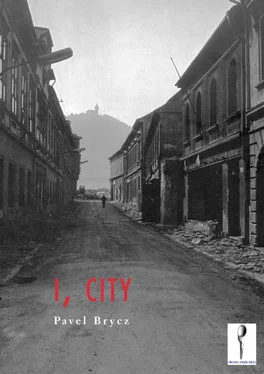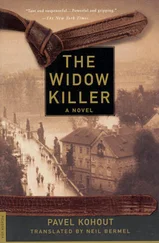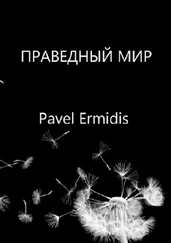Pavel Brycz - I, City
Здесь есть возможность читать онлайн «Pavel Brycz - I, City» весь текст электронной книги совершенно бесплатно (целиком полную версию без сокращений). В некоторых случаях можно слушать аудио, скачать через торрент в формате fb2 и присутствует краткое содержание. Год выпуска: 2006, Издательство: Twisted Spoon Press, Жанр: Современная проза, на английском языке. Описание произведения, (предисловие) а так же отзывы посетителей доступны на портале библиотеки ЛибКат.
- Название:I, City
- Автор:
- Издательство:Twisted Spoon Press
- Жанр:
- Год:2006
- ISBN:нет данных
- Рейтинг книги:5 / 5. Голосов: 1
-
Избранное:Добавить в избранное
- Отзывы:
-
Ваша оценка:
- 100
- 1
- 2
- 3
- 4
- 5
I, City: краткое содержание, описание и аннотация
Предлагаем к чтению аннотацию, описание, краткое содержание или предисловие (зависит от того, что написал сам автор книги «I, City»). Если вы не нашли необходимую информацию о книге — напишите в комментариях, мы постараемся отыскать её.
Dubliners
I, City
I, City — читать онлайн бесплатно полную книгу (весь текст) целиком
Ниже представлен текст книги, разбитый по страницам. Система сохранения места последней прочитанной страницы, позволяет с удобством читать онлайн бесплатно книгу «I, City», без необходимости каждый раз заново искать на чём Вы остановились. Поставьте закладку, и сможете в любой момент перейти на страницу, на которой закончили чтение.
Интервал:
Закладка:
Not even the Führer himself has what I have — he caught himself in the heretical thought and was glad that the Magi at the Leader’s headquarters didn’t yet know how to read minds.
He approached his wife and child. It’s a big day today. Tonight I’ll drink champagne, he thought. He undid his son’s swaddling clothes, and how great was his disenchantment!
His Aryan boy had an imperfection of the last boy in any village. His wonder son had a defect, foreskin constriction, medically known as phimosis. Scheisse. Incredible. Secret. Top secret! His father roared to the heavens.
At that time another man had his turn. A mohel . A circumcist. Only he could perform a circumcision on the boy, only he could see him — as he would take the secret to his grave.
“Lord, you saw my misery and you turn your face again to me,” the mohel Moshe prayed to his God without benefit of phylacteries. Then, he performed the circumcision under the strictest of hygienic conditions, in absolute isolation and with submission to God’s will.
For the brit milah , the “covenant of circumcision,” he didn’t have the luxury of the ten righteous men representing the delegation of Israel, he didn’t have anything with which to fulfill with dignity the covenant of Abraham.
Nevertheless, the prophet Elijah came and stood by his side to assist him, and nevertheless the wonder-rabbis from Prague, Galicia, Lublin and Bilgoray visited him, too. Also the Golem was there, today nearly human.
He heard a great voice.
Tears of joy entered his eyes. God spoke through the mouth of Abraham:
“As for you, you shall keep my covenant, you and your descendants after you throughout their generations. This is my covenant, which you shall honor, between Me and you and your descendants after you: Every male among you shall be circumcised. You shall be circumcised in the flesh of your foreskins, and it shall be a sign of the covenant between Me and you. He that is eight days old among you shall be circumcised; every male throughout your generations, whether born in your house, or bought with your money from any foreigner who is not of your offspring, both he that is born in your house and he that is bought with your money shall be circumcised. So shall My covenant be in your flesh an everlasting covenant.”
Abraham finished his speech. Elijah flew high up to the heavens. The mohel Moshe kept his promise, and followed them. When the Russians liberated the camp, they were very much surprised to find the camp’s commandant clinging to a small black-haired Jewish boy more than to his own life.
So ends this fairy tale about human pride.
It was the God of Israel Who through the circumcision chose the boy’s fate.
The meek lady on a walk.
Through Skupova Street, bowing to the sparrows, pigeons and stray cats — such is the way she bows to life.
Shalom, Mrs. Ezechielová.
Good day.
AN APPEARANCE, HOLLYWOOD
I’ve always loved that Hollywood gold dust, flying from the embrasure of the film projector’s booth to the screen of the cinema. How many times have I bent a head backward, like boys throwing crumpled tickets and chewing gum wrappers into this dust to see them flare for only a moment? How many times!
No wonder that today, too, indeed, right this slow second, I sit in the movie theater watching the end of a film entitled Winnetou: Last of the Renegades . And while Winnetou and his white brother Old Shatterhand are disappearing toward freedom in the bluish range of the Rocky Mountains, the usherettes rise, rattling their rings of keys, making it all too clear that the death knell of the Rocky Mountain dream had just rung.
A handful of spectators, who for the past two hours had dreamt of freedom, with discipline relinquish that freedom and leave in a rush, as if running from their very shadows, which steal across the wall and always only across the wall, shadows nailed to the bodies as some dark outer skeleton.
Is it all over?
Wait up! What’s going on? I, city, to whom no restriction of walls applies, because I myself am walls, and no restriction of space, for I myself am space — I continue sitting and see that I am accompanied in the row by a man gazing at the credits of the ending film as if through them he himself wanted to get all the way to Canada and maybe even further, as if in them he read some cipher, some message that he had to decode until the usherettes draw the curtains; and yet he has to go on decoding it, even as the usherettes turn off the lights in the theater, still, even though the lights in the lobby of the Mir Cinema flicker as they fade, incessantly, even when the key rattles in the lock from the outside after the usherettes have all left.
Good night, ladies! I think, and with amusement I watch the young man — he’s about thirty years old — whom they’ve locked in here.
Only now does the man realize where he is, and he runs out of the theater. He hurries through the empty hallway to the door, seizes the handle, gives it a couple of jerks back and forth.
But only for a moment. Only for appearances.
He doesn’t kick the locked door. He doesn’t swear.
He doesn’t gnash his teeth, doesn’t throw his body against the door. He only smiles a bit.
He doesn’t break out in maniacal laughter.
He doesn’t slap his thighs, doesn’t chuckle so that the cinema’s vaulted ceiling would fall.
He only smiles, scarcely to be seen in the dark. Then he thinks.
Not that he would think as others would think, or even think at all. Rather, he dreams.
A man with a head so thoroughly deranged by a movie starring Pierre Brice and Lex Barker, he’s nearly crazed.
A man locked into the Mir Cinema by the usherettes.
What a headline for the tabloids!
A skillful scribbler would write:
HE STOLE THE CINEMA ALL FOR HIMSELF.
“A man, 30, for unknown reasons spent the night in the Mir Cinema. Mental state of said person is subject to examination by a specialist. Particulars about this unusual case will be made known in the next issue.”
Though I am a city, I’m not interested in the tabloids.
I’m interested in a story. And what really happened to the man who would become the hero of this story, whose supporting characters are a cinema, the night, usherettes, Winnetou: Last of the Renegades and who knows what else. Perhaps the man isn’t the only hero of this story. Not by a long shot. Might his father be no less a hero?
Isn’t that possible?!
What if the man, who remained alone in the cinema, had visited a cinema for the first time with his father? What if he was eight and they were showing Winnetou? What if there were no tickets left? And what if his father then talked an usherette into letting them in on the stairs and what if this usherette had let a whole hundred of fathers with their sons into the sold-out Winnetou and all of them had to stand next to the seats, stood during the movie as one stands for the anthem and stared enraptured at Winnetou and Old Shatterhand, as the two men made themselves brothers through blood — ah, how the father Karl May had to be so very happy and lonely when he first wrote them — and they, father and son, have never stood together in the cinema since; they’ve sat, but never again together, even though they, too, had been fraternized through blood.
And what if they never get another chance?
Because in this world men and women part all the time. This can be sadly seen in Winnetou . I, city, know that well.
They don’t stand here anymore, a hundred fathers and sons, as one stands for the anthem, and the usherette, who let herself be talked into it, is nowhere to be found either.
Читать дальшеИнтервал:
Закладка:
Похожие книги на «I, City»
Представляем Вашему вниманию похожие книги на «I, City» списком для выбора. Мы отобрали схожую по названию и смыслу литературу в надежде предоставить читателям больше вариантов отыскать новые, интересные, ещё непрочитанные произведения.
Обсуждение, отзывы о книге «I, City» и просто собственные мнения читателей. Оставьте ваши комментарии, напишите, что Вы думаете о произведении, его смысле или главных героях. Укажите что конкретно понравилось, а что нет, и почему Вы так считаете.












